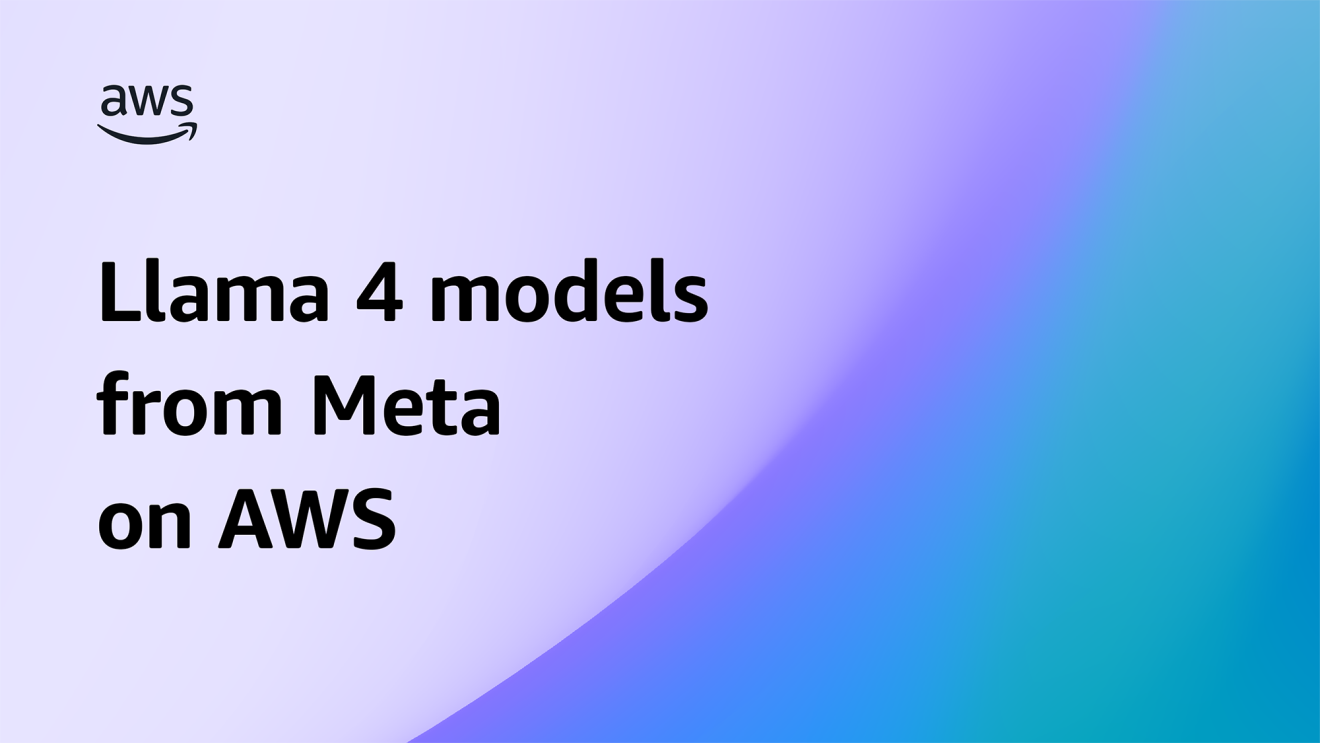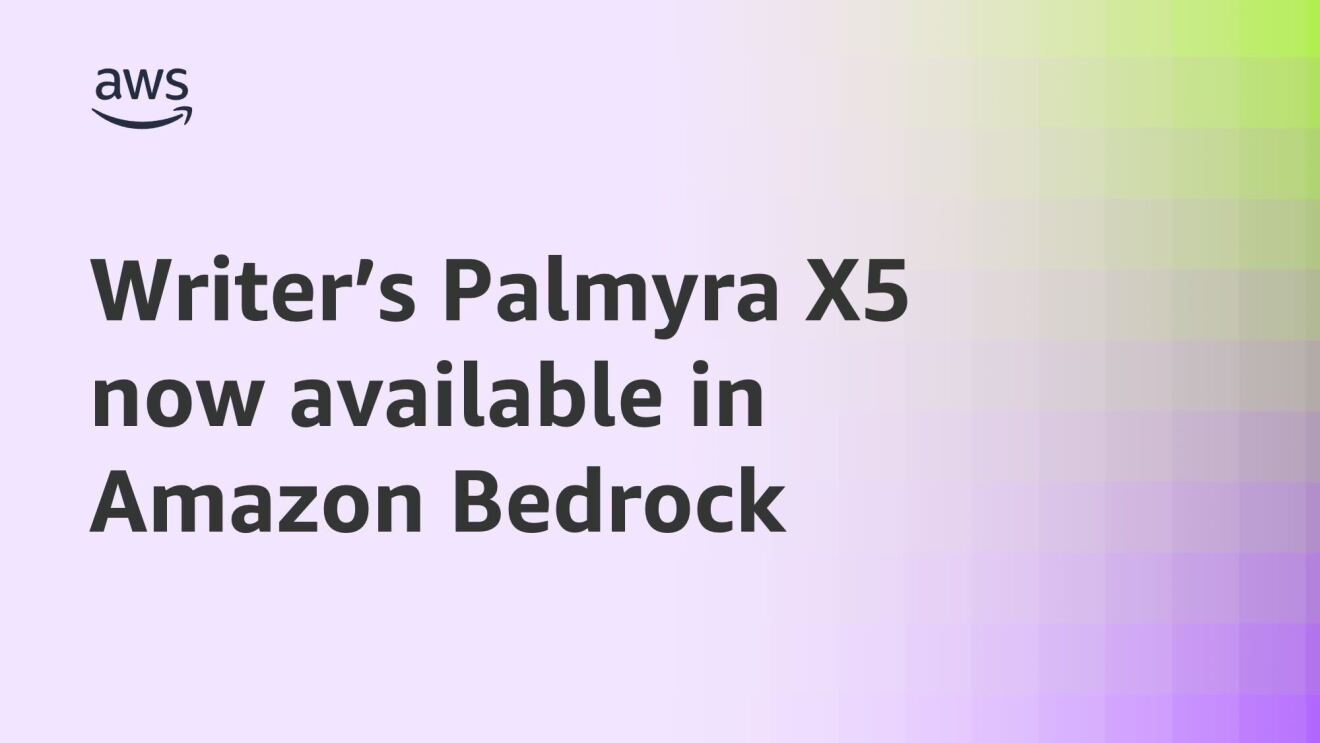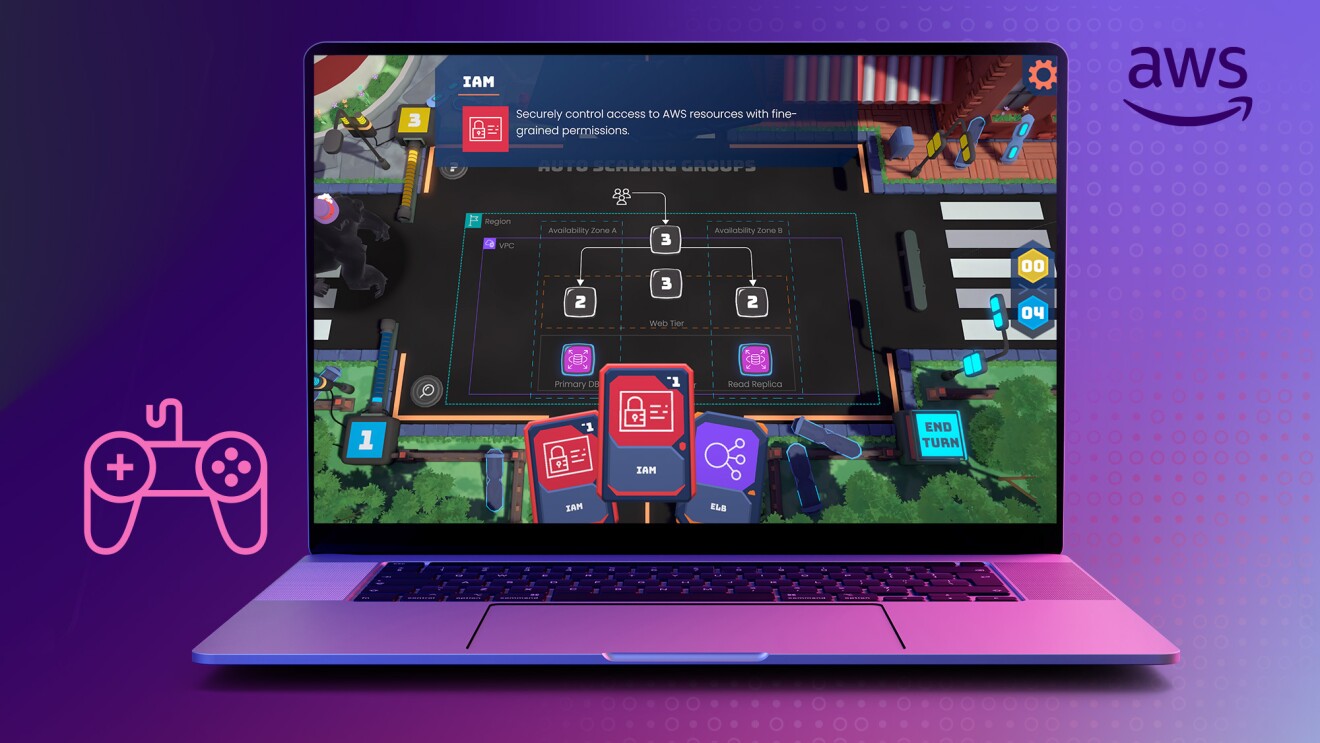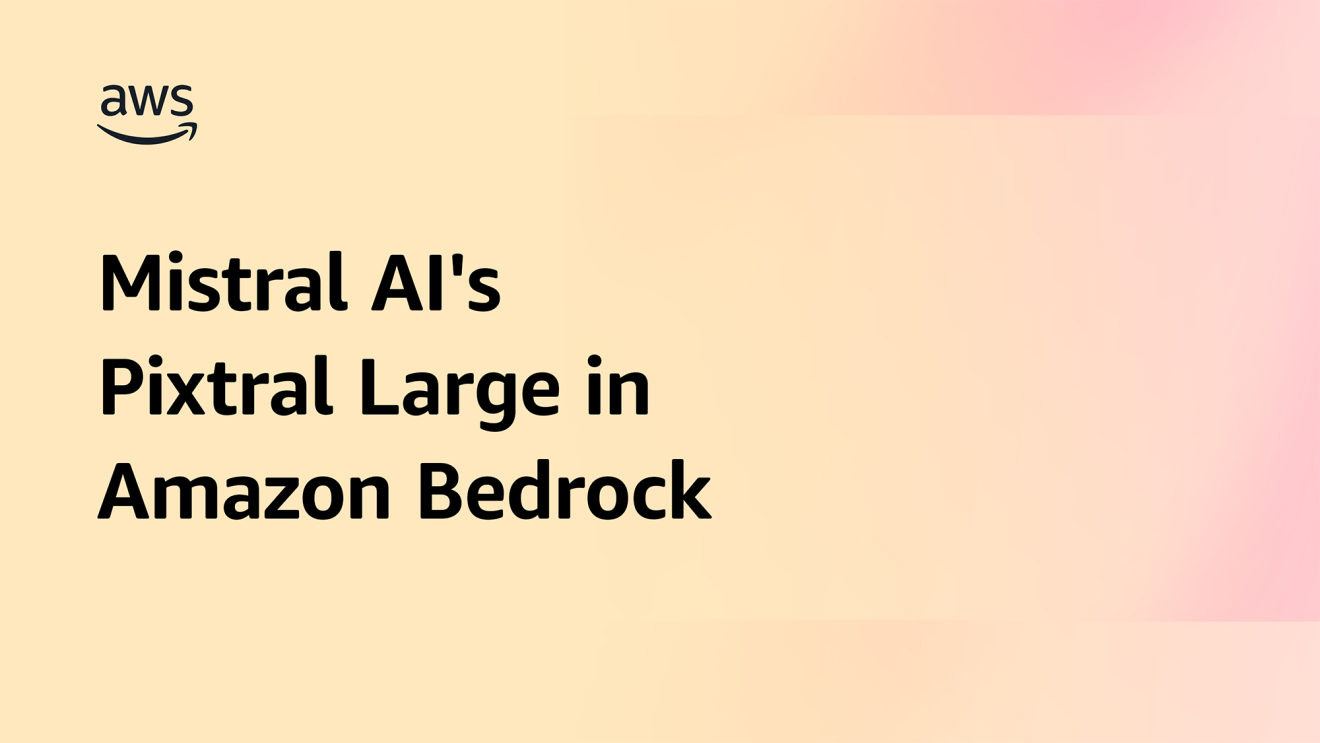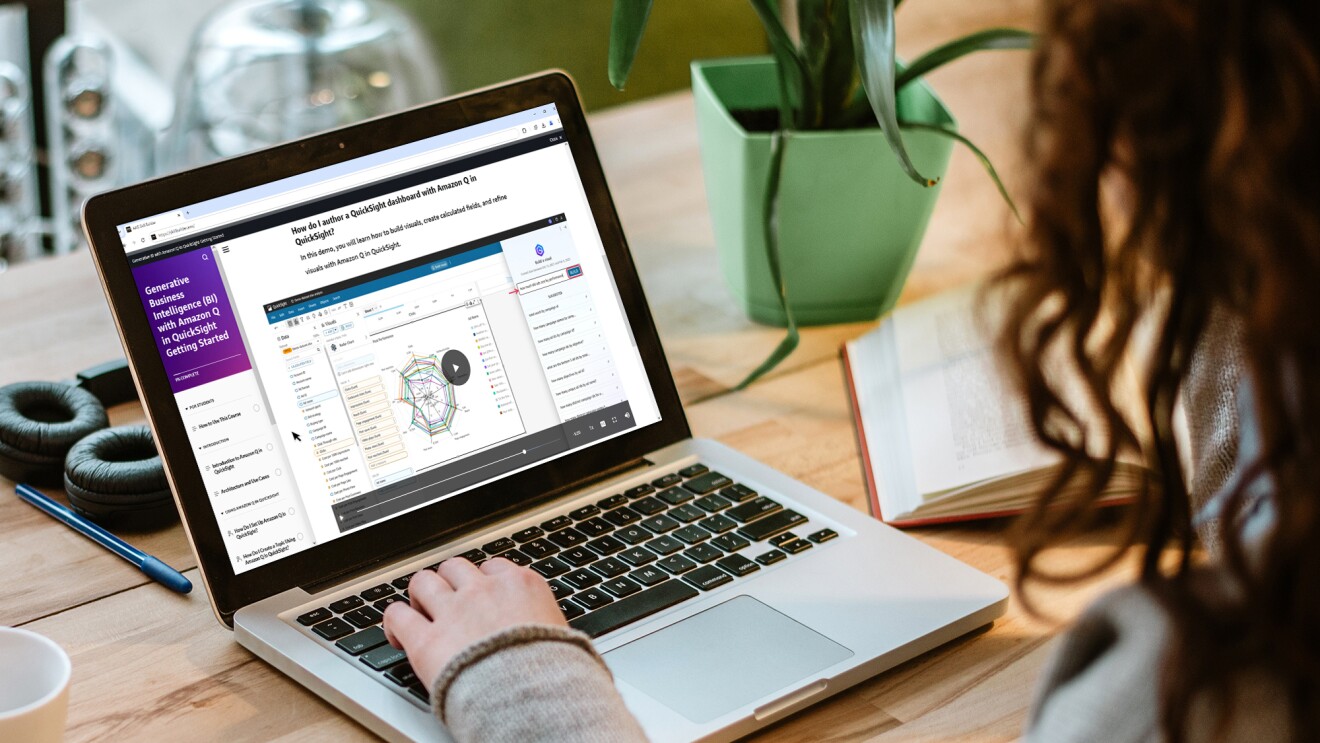The AWS InCommunities Scholarship Program offers scholarships to high school seniors in specific communities who plan to pursue science, technology, engineering, and math (STEM) subjects as part of their higher education. The scholarships are renewable each year and open to students from designated districts of California, Oregon, Ohio, and Virginia, where the company has data center operations.
A total of $100,000 in scholarships is available to students enrolling in courses such as electrical and electronics engineering, computer science, artificial intelligence, biochemistry, software engineering, and physics.
Since 2019, AWS has awarded 120 scholarships to students from across four states. Applications for this year’s scholarships are open through March 29. Interested students from designated districts in California, Oregon, Ohio, and Virginia can learn more by visiting the program website. The program has awarded 40 scholarships since 2021, and students can reapply each year.
Six scholarship recipients told us what being supported by AWS means to their studies and future career plans. Hear from those students below:
America Pacheco
Computer Science, Oregon State University
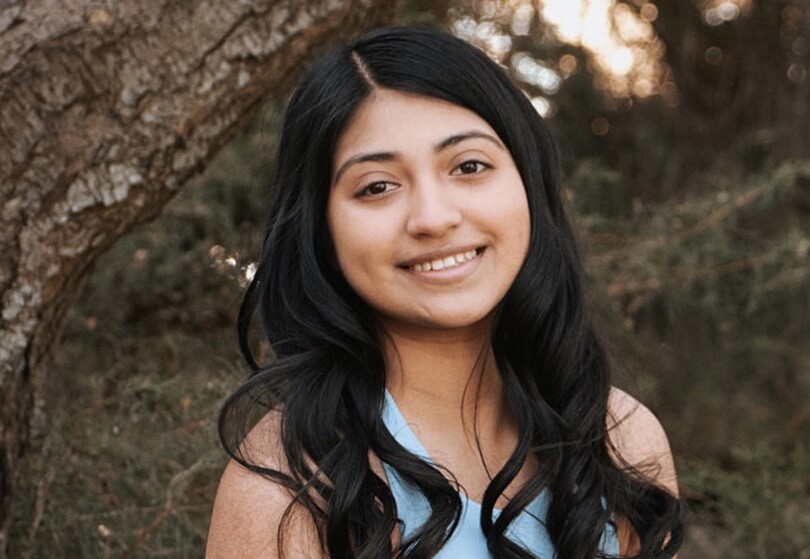
America Pacheco is from the small town of Boardman, Oregon, and currently studying computer science at Oregon State University.
Her course of study has a particular emphasis on cybersecurity, a topic Pacheco only recently discovered she was passionate about.
“Growing up, I didn’t see many women in tech careers,” she said. “I never thought of myself doing anything STEM-related until I got to high school.”
Everything changed when Pacheco attended a series of introductory computer science classes, which captured her imagination.
“I was so intrigued. Each week was a different project. It challenged me, but it also gave me opportunities to be creative, which I really enjoyed.”
While the classes sparked Pacheco’s interest in cybersecurity, she developed a passion for it during the COVID-19 pandemic.
“I was at home constantly, and I was bored,” she said. “During that time, I decided to take a couple of free online computer science courses offered by Amazon. At first, it was for a bit of fun, but I got to a point where I discovered I really liked it and wanted to continue growing these skills.”
As she began to plan for university, Pacheco reviewed her finances and realized she would probably need to have a part-time job to finance her degree.
“I thought college was doable if I worked part time and during summer breaks, but this isn’t ideal when you want to focus on your studies. When I received my Amazon scholarship, I was so excited. It’s helped me so much. I can worry a little less about finances and concentrate more on my studies and enjoying my college experience.”
Although she has moved to the other side of Oregon for college, Pacheco remains focused on her local community. “The population of Boardman is about 5,000,” she said. “Amazon and AWS have played a big part in its growth since building a data center here, in addition to many other data centers across Oregon. That growth is something I always wanted to be part of. Although I’m in a completely different part of Oregon right now, I want to return home and give back to my town in some way in the future.”
Allie Huszcza
General Engineering, Virginia Tech
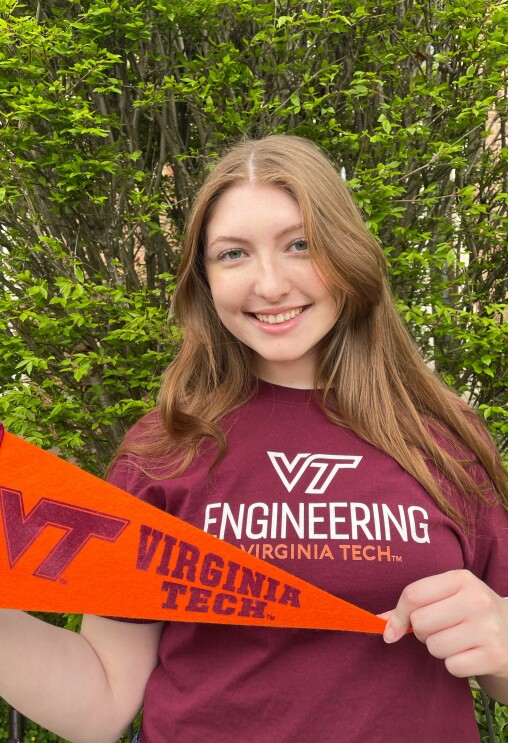
Growing up in Manassas, Virginia, Allie Huszcza had an interest in engineering and science from an early age.
“I just love science,” said Huszcza. “It was always my favorite subject in school. My parents would buy me science kits and books when I was younger, which also helped to nurture my interest.”
Huszcza was encouraged by teachers to join the robotics club at her middle school, which ultimately led her to winning first place in the Virginia state round of the global VEX robotics championship. Then at the age of 13, she participated in the world championship. She credits that competition as being a pivotal moment in her academic career, one that inspired her to consider studying science in the longer term.
“The experience of meeting people from all over the world who were also interested in robotics was eye-opening to me,” she said. “I realized how much demand there is for expertise in this area. The opportunities seemed to be endless.”
Now studying general engineering at Virginia Tech, Huszcza has turned her focus to biomedical engineering. She will soon choose a major in the engineering field.
“Although I don't have a specific idea of what I want to do, I know that I want to use STEM to impact the world and help people. I would like to go into the medical side of engineering. I think it’s an area where my work would make a positive difference to people who are in need.”
Huszcza was thrilled to receive the scholarship from AWS and immediately shared the news with friends and family.
“I have three sisters, and we're all pretty close in age,” she said. “Soon, my parents are going to have four college tuition bills, so having this extra financial support really helps them out. It’s really cool that I can say that AWS provided me with a scholarship to go to college.”
Obinna Ekeagwu
Mathematical and Computational Science, Stanford University
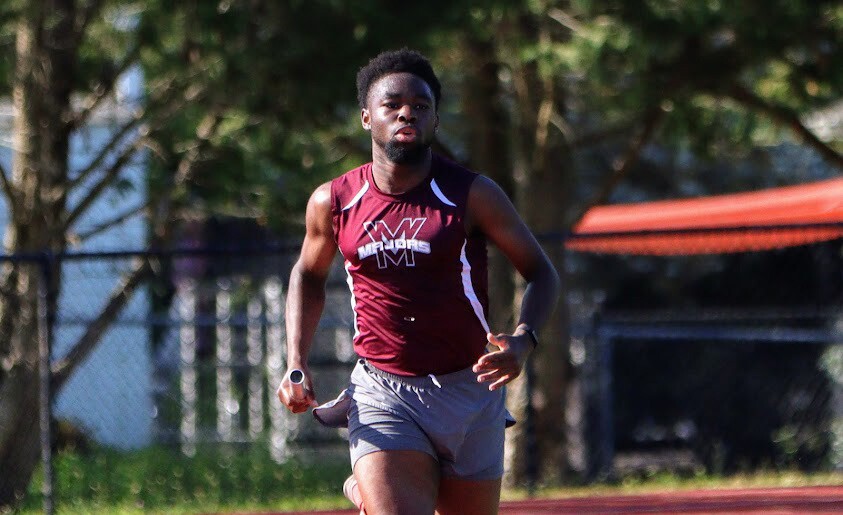
Obinna Ekeagwu recently moved from Alexandria, Virginia, to Stanford University in California to study mathematical and computational science, a subject he has always found fascinating.
“It’s a difficult topic, but something that I’ve been interested in for a few years now. I’m always trying to find unseen trends and patterns in daily life,” said Ekeagwu.
Ekeagwu sees the AWS scholarship as validation of the effort and determination he puts into his studies. “It was very fulfilling to receive the award from AWS. I’ve applied to a lot of scholarships, and the process is very competitive. This has definitely taken some pressure off me by covering indirect costs such as transport and textbooks,” he said.
“As a general motto, I always say, ‘When you work hard, you’re in a better position to benefit from good fortune.’ That applies to this scholarship, too. Even though you’ll never be able to guarantee anything in life, hard work can set you up to take advantage of a lucky break.”
Flavia Hanna Mendoza-Garcia
Computer Science, George Mason University, Virginia
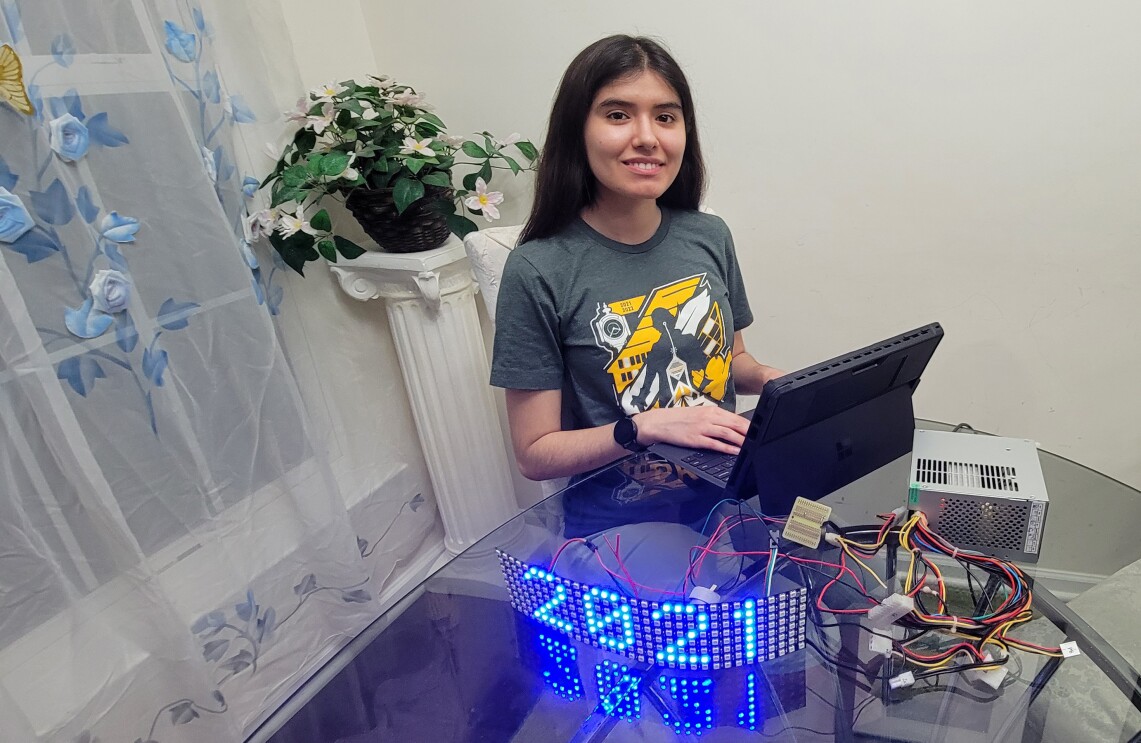
Flavia Hanna Mendoza-Garcia is passionate about a lot of subjects, ranging from environment-protecting robotics and, creative coding for websites to effective marketing for empanadas.
Although Mendoza-Garcia is studying computer science, she wasn’t always certain this was the route for her.
“I found it really hard to choose what to study,” she said. “That’s why I experimented a lot with different courses in middle and high school. I took a computer science class while still in high school and just fell in love with the subject.”
Mendoza-Garcia realized that a degree in computer science would allow her to cover a range of subjects, while opening up a variety of opportunities in the future.
Already, she has found a few key areas of interest, such as the use of technology to tackle environmental challenges.
“I’ve been really inspired by an organization called The Ocean Cleanup, which uses solar powered ‘interceptors’ to autonomously extract plastic debris from rivers,” she said.
Another of Mendoza-Garcia’s passions is closer to home—her parents' small businesses. The latest of these is My Bites Bakery, which they set up during the pandemic to sell homemade empanadas.
“I helped create the website. I really love connecting technology with creativity in this way,” said Mendoza-Garcia.
Meghan Van
Biology pre-major, University of California, Santa Barbara
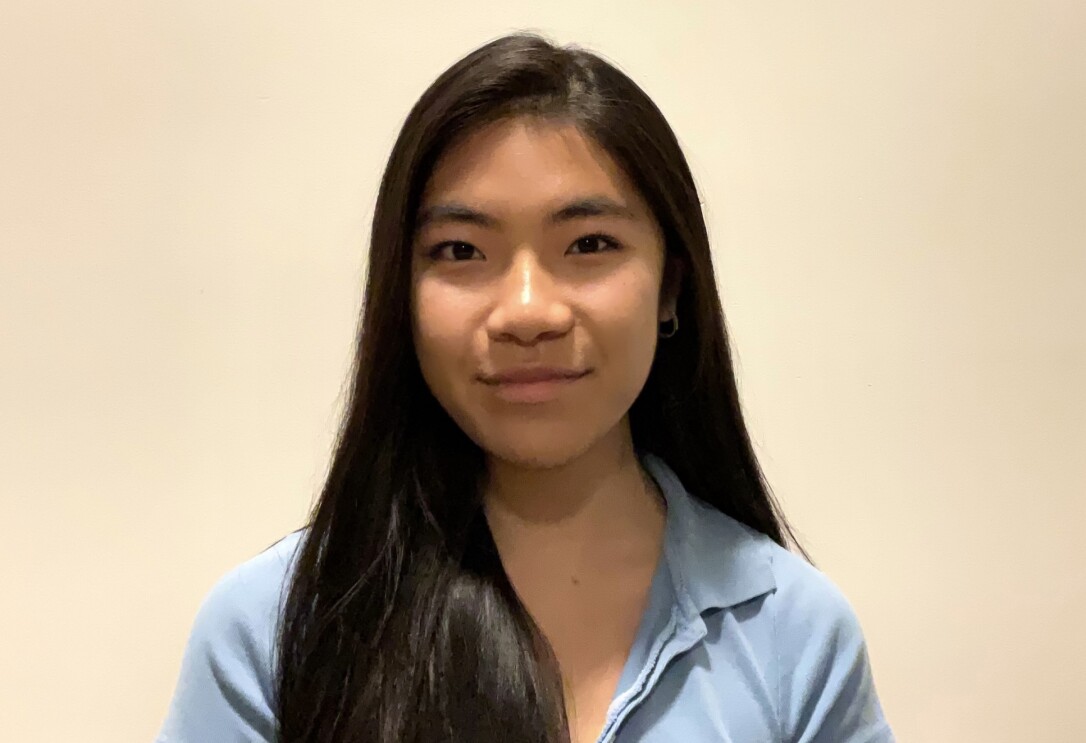
“Where I live is very tech-oriented,” said Meghan Van, who grew up in the San Francisco Bay Area. “It's something that I noticed very early on, but back then, it was never my main interest.
Van said the turning point came when she was 15 and was assigned a chemistry project with a twist. Unlike previous class experiments, this one had no guidance, and students were expected to find their own methodology.
“I basically had to construct the whole experiment myself. The lab, the process, the metrics, and everything. I had so much fun doing it. I didn't even realize I had done well at the time, but after finding out that I had scored highly, I thought 'Yes, I can really do this.'”
Now at the University of California, Santa Barbara, Van is working towards a degree in biochemistry, with a very specific ambition. “I've always wanted to cure liver disease, specifically the genetic iterations,” she said. “It runs in my family, and it really bothers me. So, it's my goal, a very big one—possibly unattainable, but definitely something that I look towards.”
The AWS InCommunities scholarship has made Van’s time at the university less stressful than anticipated.
“Money was a concern,” she said. “My mom is a single mom, and sometimes, finances can be difficult. Having a scholarship has helped me both academically and mentally, now that I don’t have to worry about certain pressures.”
Tanisha Tarin
Computer Science and Public Health, Johns Hopkins University
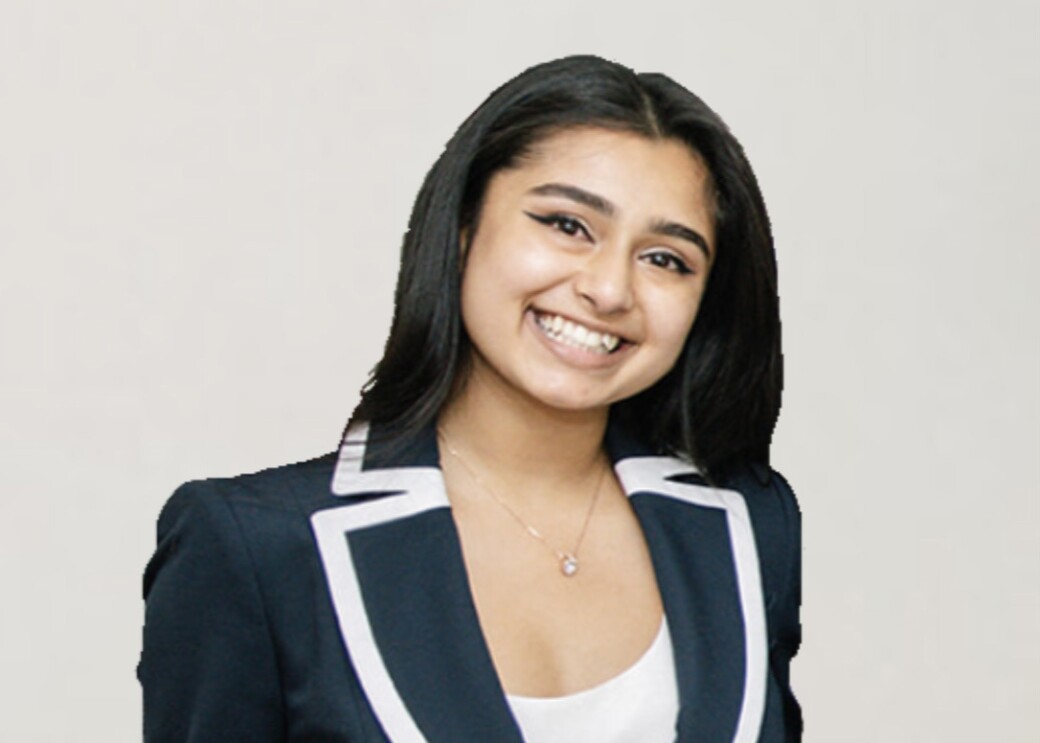
Tanisha Tarin discovered her passion for technology when she stumbled across a box of her dad’s old floppy disks while looking through her family's things.
“My family members are slight hoarders,” she said. “They kept a bunch of old laptops, CDs, and floppy disks, and they let me rummage through them. I was always so intrigued and wanted to play around with it all,” she said.
Over a decade later, Tarin is studying computer science and public health at Johns Hopkins University. She credits her interest in the intersection of health and technology to her experience as an intern at an association for health insurance providers across the U.S.
“One of the projects that we worked on used technology—in particular, AI—to look at the social determinants of health. It was so exciting. Using the tools we had, we were able to figure out all of these specific reasons why people were getting sick, as well as why certain demographics were not willing or able to go to the hospital.”
Since then, Tarin has wanted to figure out the reasons behind some of the major health issues society is facing today, particularly those that have been around for decades. “Previously, some of these problems may have seemed unsolvable, but technology like AI is changing that,” she said.
Tarin was clear on the academic route she wanted to follow, but the financial obstacles were substantial.
“Although I looked at other universities, nothing else came close to the opportunities and training I would get at Johns Hopkins. As much as I knew it was the right fit, I also knew that I could probably not afford to go.”
She started to examine potential scholarships and came across the AWS program. “Getting the scholarship is the only reason that I'm able to be here today,” said Tarin. “It changed everything. It meant I could fund my attendance. It has literally made my dreams come true.”
Applications for this year’s scholarships are open through March 29. Interested students from designated districts in California, Oregon, Ohio, and Virginia can learn more by visiting the program website.




